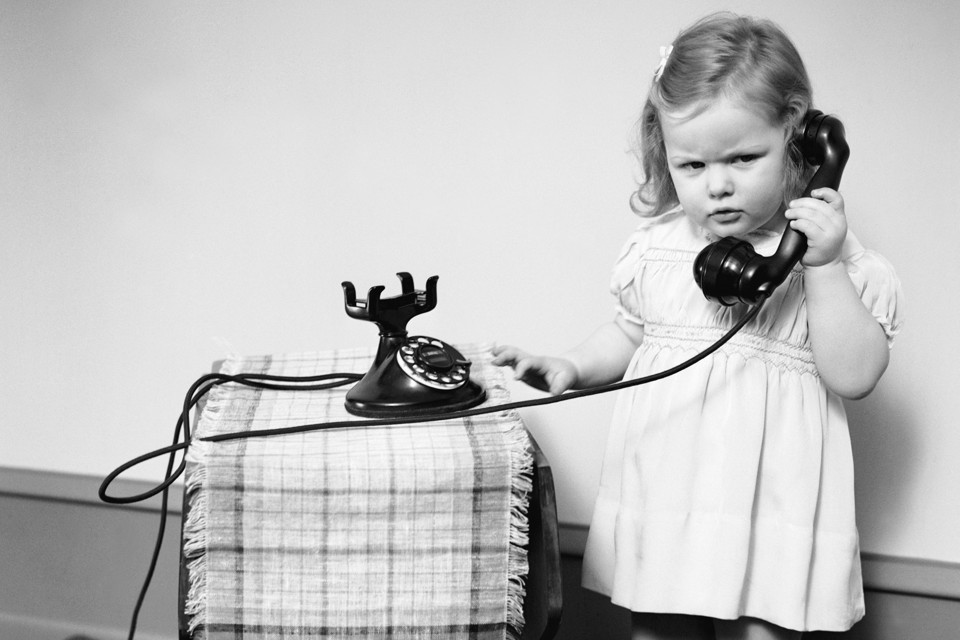Ring, ring, why don’t you give me a call?

The phone rings. I wake from a deep sleep slightly panic stricken. It takes me a minute to comprehend that I’m in bed and on the phone to a nurse from an outer island. They run through their patient’s story, requesting advice. It takes me another minute to realise I’m on call and now speaking to a nurse. I have to ask the nurse to repeat the whole story again now that I’m fully conscious.
“Sorry…start again…what was the patient’s name?…how old are they?…which island are you on?”
Being on call is synonymous with rural generalism in Australia. Here in the Torres Straits, on call means covering Thursday Island Hospital and all 15 primary health care centres on outer islands. One phone, one doctor and 4000 people across 150km of ocean; simple…right?!
Although communication skills are widely taught in medical schools, phone medicine is not. It is distinctly different from face-to-face patient interactions. You ascertain a patient’s history second hand from the health care worker or remote area nurse based at the clinic. You rely on them to physically exam the patient. You collaborate with them to develop a working diagnosis. You trust them to provide initial management. It’s by no means easy task and yet time and again our health care workers and nursing staff provide incredible care to our patients in this part of the world.
Phone medicine brings with it unique challenges to consider. The inherent nature of temperamental phone reception in remote places throughout Australia can make clinical decisions both difficult and frustrating. Perhaps I should get my hearing checked, I’m always asking the caller to speak up and repeat themselves! Also, there is a direct disconnect between the treating doctor and the patient. Typically we rely on non-verbal cues and behavior during a consultation, which are critical not only to the development of a diagnosis, but also to the doctor/patient therapeutic relationship. When we practice medicine over the phone these factors cease to exist and thus tone and speed of voice become much more important in our clinical reasoning.
With these additional challenges in practicing medicine via a phone, it’s no surprise that communication and diagnostic errors occur more frequently and directly impact patient safety. Although research in this area is sparse, one study has shown that most common errors in phone medicine were due to poor documentation, poor history taking and failing to recognise the potential seriousness of the patients condition. Research also suggests that the paucity of phone medicine skills training may contribute to phone communication errors.

So here are a few suggestions to consider when next on a call:
1. Remember the simple stuff first. I have found it quite common for the caller to launch straight into the patient’s story. It takes less than one minute to ask for and jot down the patients name, date of birth and unique identifier. The best contact number to reach the caller is also handy if you loose your connection.
2. Be weary of transference. An anxious health worker or nurse on the other end of the line with an unwell patient in front of them can be confronting. I know that speaking with someone who is worried and stressed on the other end will inherently make me worried and stressed. It is a skilled clinician that can remain calm over the phone to provide a management plan, reassurance and encouragement to the team at the other end. “I can hear that this is a really difficult situation for you. You’ve done the right thing calling me, I’m here and we will work through this together.” It may seem facetious, but in times of high stress voicing the emotion with your caller may help.
3. Summarise the situation. Just as you would if the patient was in front of you. Not only does it demonstrate to your caller that you have listened and understood them, but it also ensures both parties are on the same page before moving on.
4. Keep the plan simple and clear. Communication breakdowns can happen at the best of times. Employing communication strategies such as closed-loop communication and double-checking information and management plans are even more important when on the phone. I like to talk through the plan with the nurse or health worker then repeat it a second time. I’ll then write it in our electronic notes which can be viewed by staff on outer islands. Check out this cool post about communication in a crisis.
In this era of smart phones and round-the-clock online-connectivity, telemedicine is here to stay. The rapid advent of apps offering 24/7 medical consults (find more here and here) are quickly becoming part of mainstream medicine. Whether we work in a city, suburb, rural or remote community, as medical practitioners we all have a vested interested improving our phone communication skills.
What tips do you have when managing a patient over the phone? We’d love to hear from you (@island_docs)!
